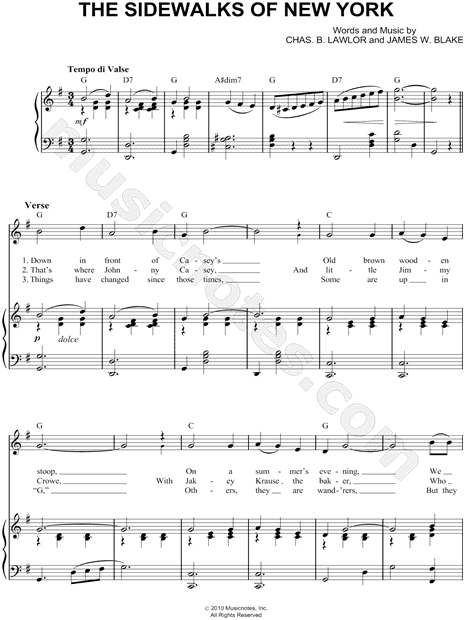on The Jazz-O-Rama Hour, part of "The Joe Bev 3-hour Block" air every Saturday, starting 1 pm (ET) / 10 am (PT) at cultradioagogo.com.
"The Sidewalks Of New York", "I'm Looking Over a Four Leaf Clover" and "It Had to Be You" will be among the 78 RPM records heard on the 16th edition of Joe Bev's Jazz-O-Rama Hour airing this Saturday, October 12, at 2 pm (ET) / 11 am (PT) on Internet radio powerhouse Cult Radio-A-Go-Go! http://www.cultradioagogo.com.
 |
| Joe Bev presents 78 RPM Jazz with a Sense of Humor |
- "The Sidewalks Of New York" - The Nat Shilkret Orchestra (1928)
- "I'm Looking Over a Four Leaf Clover" - Nick Lucas (1927)
- "It Had to Be You" - Isham Jones (1924)
- "Baby Face" - Jan Garber (1926)
- "As Time Goes By" - The Columbians / Freddie Rich Orchestra (1920s)
- "Moonlight and Shadows" - Shep Fields and His Rippling Rhythm Orchestra (1936)
- "Sing Song Girl" - Bob Haring's Colonial Club Orchestra (1930)
- "Honolulu Baby" - Weintraub's Syncopators (1936)
- "Managua, Nicaragua" - Guy Lombardo's Orchestra (1946) "Ac-Cent-Tchu-Ate The "Positive" Kay Kyser and his Kollege of Muiscal Knowledge (1944)
- "Dem Bones, Dry Bones" - The Delta Rhythm Boys (1930s)
- "Well, Git It!" - Glen Grey & the Casa Loma Orchestra (1930s)
"Sidewalks Of New York" was written in 1894 by lyricist James W. Blake and vaudeville actor and composer Charles B. Lawlor in 1894. The song proved successful afterwards, and is often considered a theme for New York City. Many artists, including Mel Tormé, Duke Ellington, Larry Groce and The Grateful Dead, have performed this song. Governor Al Smith of New York used it as a theme song for his failed presidential campaign in 1928. The song is also known under the title "East Side, West Side" from the first words of the chorus.
 |
| Nick Lucas |
 |
| Priscilla Lane |
"Baby Face" is a popular song written by Harry Akst, the lyrics by Benny Davis. The song was published in 1926. That same year, Jan Garber had a number one hit with the song. It was covered by many recording artists of the time (and since then), including Al Jolson and The Revelers. The Buffalodians did a version in 1926 with Harold Arlen on piano. In 1943, an instrumental version appears in the Tom and Jerry short "Baby Puss".In 1958, Little Richard peaked at number twelve on the R&B chart and number forty-one on the pop chart with his version of the song.In 1962, American singer Bobby Darin recorded a version as a single. In late-1975, disco studio group Wing and a Prayer Fife and Drum Corps recorded a disco version of the song where it peaked at number two for two weeks on the disco chart.This version also went to number thirty-two on the soul chart and number fourteen on the Hot 100 during the winter of 1976
"As Time Goes By" is a song written by Herman Hupfeld in 1931. It became most famous in 1942 when it was sung by the character Sam (Dooley Wilson) in the movie Casablanca. The song was voted No. 2 on the AFI's 100 Years... 100 Songs special, commemorating the best songs in film. It was used as a fanfare for Warner Bros. Pictures since 1998.
 |
| Freddie Rich Orchestra |
Dem Bones, Dry Bones or Dem Dry Bones is a traditional spiritual song. The melody was written by African-American author and songwriter James Weldon Johnson.
 |
| Delta Rhythm Boys |
 |
Joe Bevilacqua (Joe Bev) has been producing radio in many genres since 1971 when he was 12. At 19 in 1980, Bev became the youngest person to produce a radio show for public radio. He co-hosted The Jazz Show with Garret Gega in the early 80s, a four hour a week mix classic jazz and comedy. Bev also worked for WBGO, Jazz 88 in Newark, NJ and produced documentaries for WNYC New York Public Radio on jazz legends including Louis Armstrong, Wynton Marsalis, Count Basie, Woody Herman, Cab Calloway, and Lionel Hampton.
Bev also produces, directs, writes and voices half of The Comedy-O-Rama Hour, which is has been highest rated radio show on Cult Radio A-Go-Go! for many weeks. Joe Bev's other weekly radio show, The Jazz-O-Rama Hour debuted at #2.
Ten weeks ago, the veteran voice actor added his third hour for Cult Radio, called The Joe Bev Experience which airs right after The Jazz-O-Rama Hour.
More about Waterlogg Productions at http://www.waterlogg.com.


More about Waterlogg Productions at http://www.waterlogg.com.
|
or visit SimplyAudiobooks.com or Audible.com or theaudiobookstore.com or Amazon.com or theAudioBookMart.com or iTunes.com
|










No comments:
Post a Comment